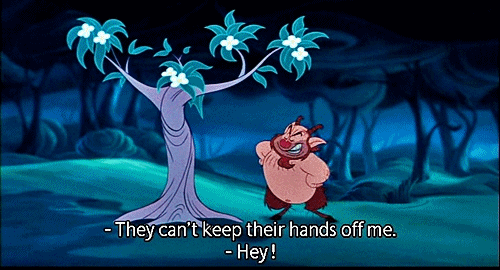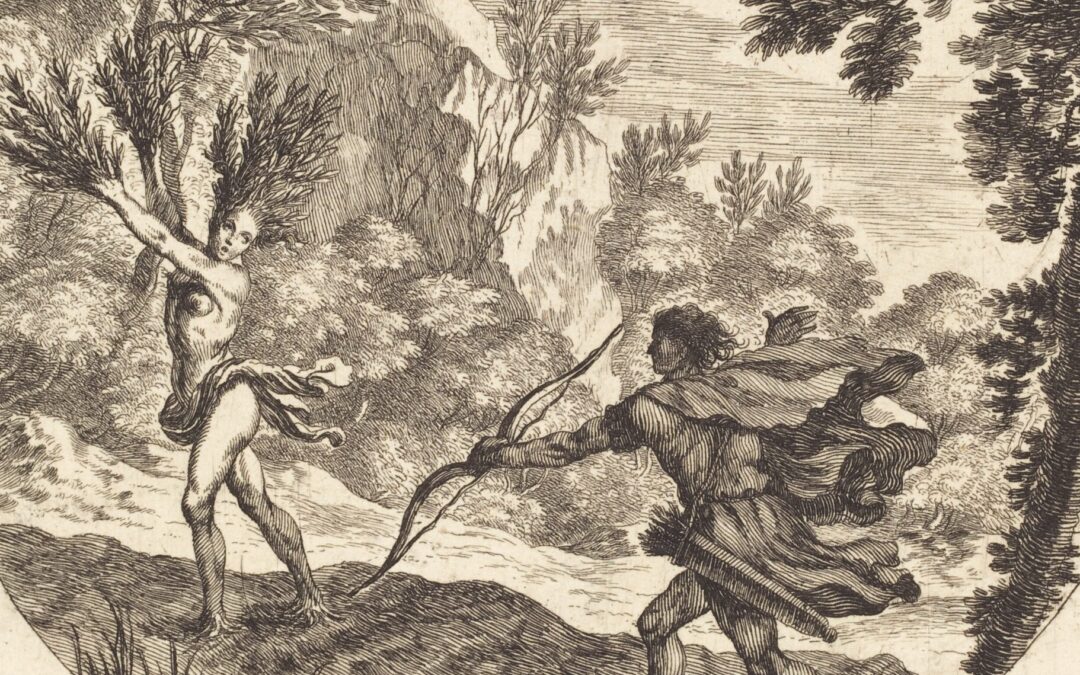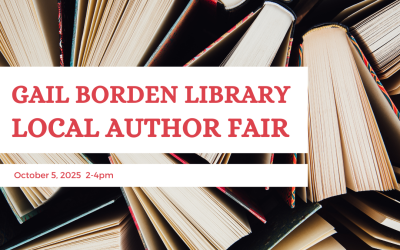When books with helpless waifs and overbearing hunks stop hitting like they used to, it’s time to find a romantic lead with a little grit.
Doesn’t it blow your mind to think that we still retell stories from thousands of years ago? Even having never read the Odyssey or the Iliad or Oedipus Rex, most people have heard of Odysseus, Helen of Troy, and the guy with the complex. They’ve encountered a few stories of Zeus behaving badly, and the name “Aphrodite” at least gets pronounced correctly. There’s also been a slew of new Hades-Persephone retellings that prove, once again, the timeless nature of these classic stories.
One of my favorite myths is one that doesn’t get told often. My first exposure to it was on a CD of renaissance music performed by The New World Renaissance Band. The song, “Daphne,” a sprightly renaissance bop written by an anonymous composer, is a retelling of a chapter of Ovid’s Metamorphoses, wherein the god Apollo falls in love with the nymph Daphne and literally chases her down, despite her entreaties to leave her alone. Swoon, right?
I’ve loved this story for years. In my youth, it was a romantic tale of a man who would never rest until he won his true love’s heart. “Oh, turn, oh pretty sweet, and let our red lips meet,” he sings. I ate that up as a preteen: reluctant heroines and overeager Lancelots vying for their affection. I wasn’t even picky about who pursued the heroine—the chase was more exciting than the happily ever after, so who was I to demand that only the hero can try to seduce the maiden? Honestly, as soon as Jafar dressed Jasmine up in that red outfit, it was all over for me.1

(Someday I’ll post my list of Movies from My Childhood Wherein the Villain Abducts the Ingenue and Makes Her Wear a Sexy Outfit. For such an oddly specific trope, there are more than two movies on that list.)
The trope of the chase is tricky to execute in a way that doesn’t shrink and flatten the heroine into “a prize to be won” (another Jasmine reference). Romance novels from the 80s and 90s are repeat offenders, and even many recent releases feel trite at best and condescending at worst. Nowadays, I want to read about a woman who refuses to settle for less than she’s worth. So when I set about revising an old story I had written as a teen, it made sense that the central romance that had me melting as a kid now felt tragic. Heroine complacence and unrealized agency was rampant in my youthful writing. I still love the Daphne myth, but now it’s not a love story. It’s a thriller.
As I reworked my romance project, I read Metamorphoses, a series of myths and legends collected and/or invented by the Roman poet Ovid. It’s been translated dozens of times, but I was immediately drawn to the Arthur Golding translation from 1567. According to W.H.D. Rouse’s edition from 1904, we know that William Shakespeare was a huge Ovid fan, borrowing stories from the Metamorphoses for Titus Andronicus and A Midsummer Night’s Dream.2 He probably read it in the original Latin, but he does quote Golding’s translation in The Tempest and borrows other bits of Golding’s language in Venus and Adonis and Othello.3 My book is set at the height of Shakespeare’s career, so it seems natural that my main character would have read this translation too.
Plus it’s just a really cool translation, if you’re an English nerd.4 I asked my library for a copy of the John Frederick Nims edition of the Golding translation, as well as a modern translation by David Raeburn for comparison.
The plot points are all the same no matter what edition you read: Apollo falls in love with a nymph who’s just minding her own business, and thus begins an epic chase scene that culminates in Daphne transforming herself into a laurel tree. Smitten Apollo pledges to honor Daphne forever by crowning heroes with her leaves, which is where the tradition of the laurel crown originates.
If you’ve seen the 1997 Disney animated film Hercules, you’ve heard of nymphs. Philoctetes peeps through the bushes at a trio of them bathing, and when they spot him, they scatter, transforming into various flora.5 You might think, watching this scene, that nymphs are naturally shy and elusive. Or maybe it’s just that a satyr with the voice of Danny DeVito doesn’t do it for them.

Maybe that was Daphne’s problem when Apollo started grabbing at her: she was skittish, or she was playing hard to get, or she just wasn’t that into him. But there’s an oft-overlooked point of the story, one that even the Encyclopedia Britannica doesn’t note in their “Daphne” entry6: neither Apollo nor Daphne had any choice in the matter. They were being manipulated by Eros.
Struck by Cupid’s arrow is not just a euphemism in this case. If we return to the source, we learn that the story begins with Eros, the god of love, picking on Apollo for being young, hot, and full of himself. When Apollo claps back, Eros shoots him with one of his patented golden love arrows, and then heightens the drama by shooting another arrow—one with a lead shaft—at the unsuspecting Daphne. Hilarity ensues.
Our girl Daphne was living her best life running feral in the woods with the animals, letting her hair flow free. She was so anti-marriage that she told her father, a river god, she wanted to devote her maidenhood to Diana, the goddess of the hunt.7 We understand this to be the result of Cupid’s other arrow, except that she’s apparently been living this way for a long time, judging by how much her dad complains about a lack of grandchildren, and how long her hair has gotten (seriously, there are multiple verses devoted to the state of her hair).8
You know Cupid is giggling madly as he watches this unfold: a cranky, unwashed woman with a stay-out-of-my-swamp attitude, paired with a jackass who will not shut up.

Apollo’s sales pitch touches on all the important points: he’s a god, and he’s really good with a bow (incidentally, the same boast that got him into this trouble in the first place). He would have gone on, but that’s when Daphne started to run. Unfortunately for her, “hir running made hir seeme more [fair]”9 and like Mr. Darcy, Apollo is taken with her womanly figure in motion.
The chase is perhaps the best part of Golding’s poetic translation. He makes a comparison between a greyhound and a hare, using some rather sexually charged language:
The [hound] aye [pressed] with open mouth to beare the Hare away,
Thrusts forth his snoute and [girdeth] out and at hir [loins] doth snatch,
As though he would at everie stride betweene his teeth hir latch:
Againe in doubt of being caught the Hare aye shrinking slips
Upon the [sudden] from his Jawes, and from betweene his lips …10
Daphne knows she is no match for his god-like speed and agility, and her terror is palpable in the poetry. “[F]eare did make the Mayden fleete,” Golding says, then states a few lines later that Apollo was “so neere that through hir scattred haire she might his breathing feele.”11 With Apollo breathing down her neck, she does the only thing she can think to do: pray for a miracle. Remember, her father is a minor river god, and even in her frenzy she understands he can’t do anything to a god of Apollo’s stature. Instead, her heartbreaking plea is to “let the earth devour me quicke, on which I seeme too [fair], Or else this shape which is my harme by [changing] straight [appear].”12 If Apollo can’t be halted or intercepted, the only other option is to remove the thing he chases.
So her father turns Daphne into a tree. A laurel, specifically, as in bay laurel, or “to rest on one’s laurels,” or that scene from Blazing Saddles.

And just when we thought she was safe, having sacrificed her entire being to avoid being the butt of Cupid’s horrible joke, Apollo kisses her trunk and embraces her branches and declares her his tree.13 Her change in form doesn’t break the spell cast by either arrow—he will never stop loving her, and Daphne can only droop her evergreen boughs in defeat.
I would like to think pre-teen me would roll her eyes at this ending, but she never got a chance: that song I thought was so romantic didn’t progress beyond verse two. If you’re interested in reading the text of all four verses, you can find them in Popular Music of the Olden Time from 1859. It’s interesting to note that the final verse of the song is much more critical of Daphne than Ovid was. The penultimate line reads, “Farewell, false Daphne, that would not pity me,” and if that makes you cringe, you should know that’s the second time the words “false” and “pity” occur in that verse. Apollo even laments his woe by crying out, “Accurs’d am I, above gods and men,” as if being jilted by a tree is the worst thing he can imagine. I assume the repetitive, melodramatic nature of the last stanza is why no one ever sings more than two verses.
Ovid, on the other hand, lets us see her fear, feel her strength failing, and experience the beauty of her transformation without passing judgment on her choice. He tells of Apollo’s chase without using any language that implies entitlement. The male lens that’s missing from the end of Ovid’s tale is prevalent in the romance novels I have trouble enjoying. So often the heroine’s reluctance is her fault: she’s too shy and virginal to give in, or she’s manipulating him by playing hard to get. Either way, the poor hero teeters on the brink of madness until one passionate speech and some well-placed caresses make the heroine change her mind about him.
Romance readers love that kind of thing, as do I, but I’m getting too old for wishy-washy damsels who need rescuing. The story I had started writing in middle school and kept coming back to in high school and college featured the wishiest, washiest heroine of them all. She had three love interests, none of whom had any redeeming qualities except that they loved her. Eventually she settled for one of them because he was her “true love,” or whatever. Then I wrote a sequel where he died, because I was tired of him. That probably should have told me something. Either I was writing cringe-worthy middle school tripe (I absolutely was), or the love interest’s only purpose was to say some cute things and be a good kisser.
My heroine deserved more than that. A few years ago, I gave the story a complete overhaul, partially inspired by the Daphne myth. I kept her naive and impressionable at first, with a spark of defiance to show what she’s capable of. I let a mediocre man chase her down and make her believe her only purpose was to be won. And then, just when her strength gave out, I opened up another path. It’s not a Daphne retelling, but it let me consider how the story might have ended if Daphne escaped. It also supplied the title, Rooted, and had me thinking about how “rooted to the spot” means something very different than “putting down roots.” One is a reaction. The other is a choice.
There’s nothing inherently wrong with a love interest who chases the main character across three counties and three hundred pages. I much prefer obvious overtures to mixed signals. By all means, let him woo her and protect her and show her he loves her.
But let it be her conscious choice to love him back. And in the words of Jane Austen’s hero, Colonel Brandon, let him endeavor to deserve her.14
Footnotes and Works Cited
1 Aladdin. Directed by John Musker and Ron Clements (Walt Disney Pictures, 1992).
2 W. H. D. Rouse, Shakespeare’s Ovid: Being Arthur Golding’s Translation of the Metamorphoses (London: The De La More Press, 1904), i.
3 Ibid, v.
4 If you’re not an English nerd, I’ve translated some of the trickier words for modern readers.
5 Hercules. Directed by John Musker and Ron Clements (Walt Disney Pictures, 1997).
6“Daphne,” in Encyclopedia Britannica, December 2, 2022. https://www.britannica.com/topic/Daphne-Greek-mythology.
7 Arthur Golding, Ovid’s Metamorphoses: The Arthur Golding Translation (1567), ed. John Frederick Nims (New York: The Macmillan Company, 1965), 19.
8 My favorite quote from this part of the story is when Apollo sees her long, uncombed hair cascading down her back and says, “O Lord and were they [trimmed] … how seemely would she bee?” (Ovid’s Metamorphoses, 20). It’s so sweet that he can see past her shortcomings and love her even without her hair done.
9 Ovid’s Metamorphoses, 21.
10Ibid, 21.
11Ibid, 21.
12Ibid, 21-22.
13Ibid, 22.
14Jane Austen, Sense and Sensibility (Oxford, UK: Oxford University Press, 2008), 130.
Image credits:
“Daphne Turning to a Laurel,” Georg Andreas Wolfgang the Elder, 1665. Image courtesy National Gallery of Art, Washington, Ailsa Mellon Bruce Fund.
Images from Disney’s Aladdin (1992), Disney’s Hercules (1997), Dreamworks Pictures’ Shrek (2001), and Warner Bros. Blazing Saddles (1974) are used according to Section 107 of the Copyright Act of 1976. I do not own these images. All rights and credit go to their rightful owners. No copyright infringement is intended.
November 9, 2025: Book Fair & Brews at Sturdy Shelter Brewing
After hanging out at Wolfden Brewing this summer, I officially think books and brews is a winning combination. I can't wait for my next chance: Sunday, November 9, from 12pm to 5pm at Sturdy Shelter Brewing in Batavia! There will be over 35 authors there, so my...
October 5, 2025: Gail Borden Library Local Author Fair
This author fair in Elgin was so great last year, I can’t wait to do it again! I had a blast sharing a table and wandering the room seeing how everyone else was displaying their amazing books.
September 15, 2025: Books & Brews at Wolfden Brewing
So excited to combine two (three?) of my favorite things at my first Books & Brews event! Drop in for a beer or two, pick up a book or three, and maybe you’ll even spot a ghost.
August 23, 2025: Elmhurst Library Author Fair
I’ll be back in Elmhurst for the second time, hoping to catch up with the author friends I made last year and connect with some new readers!
Rehearsing for perfectionist boot camp
August is when I will remind myself that I love this book I’m writing and I want it to exist. The only way I can do that, though, is to tell perfectionism to take a hike.
The softest boot camp: My 31-day plan to write (and drink water)
This month’s writing challenge is more complex than many others I’ve attempted. By the end of the month, I hope to have established a routine that improves my health as well as my creative process. And I’ll have a finished draft.







